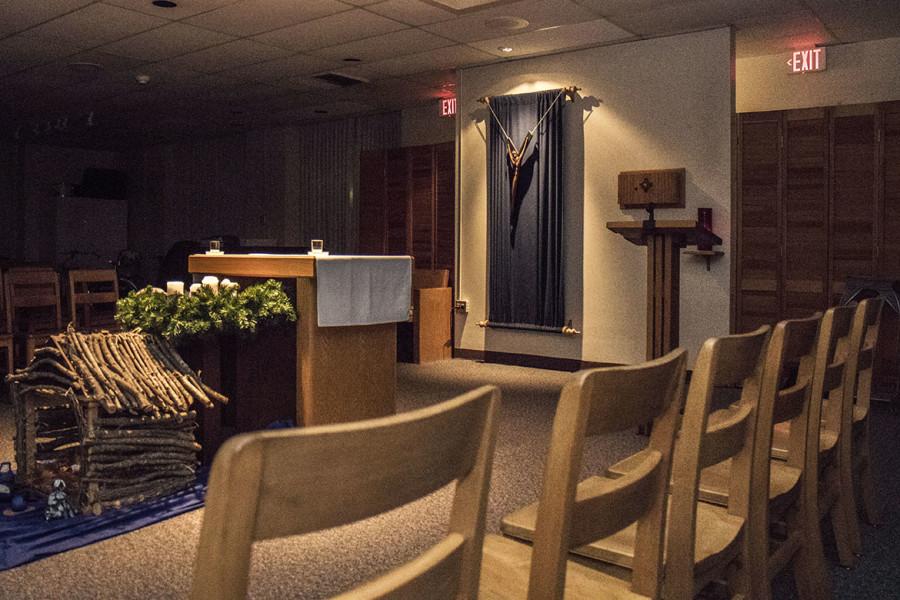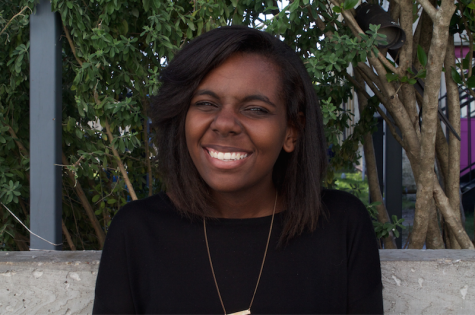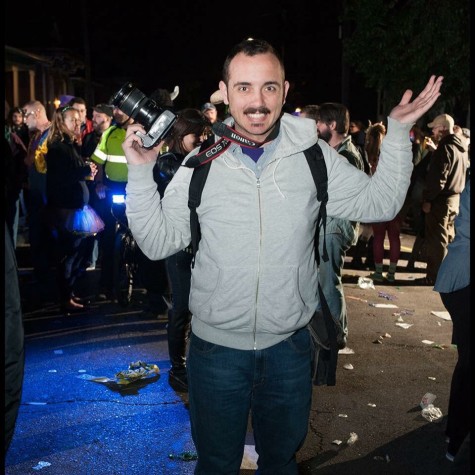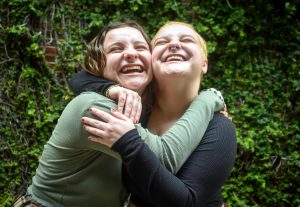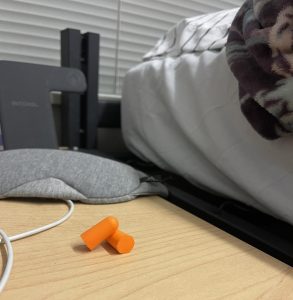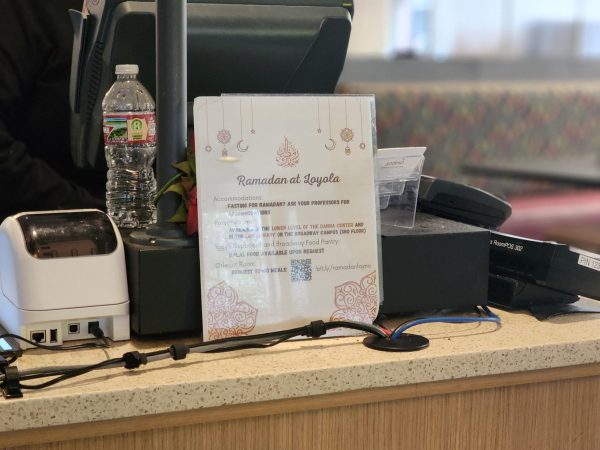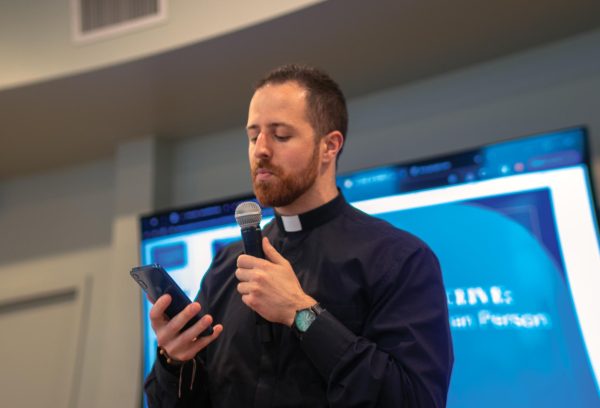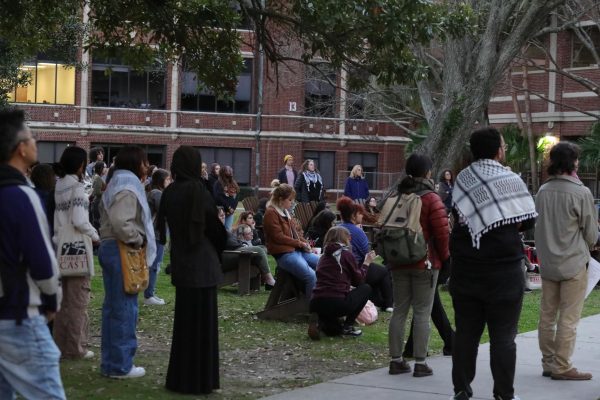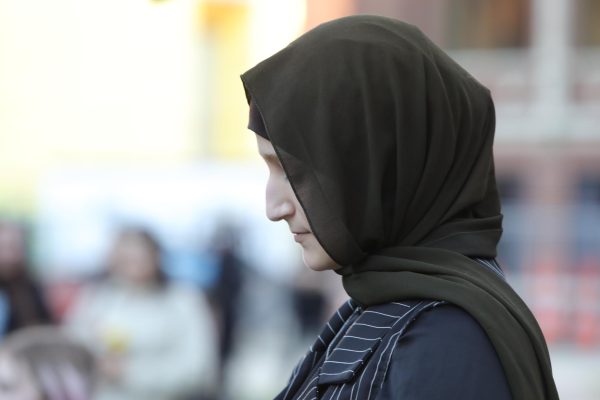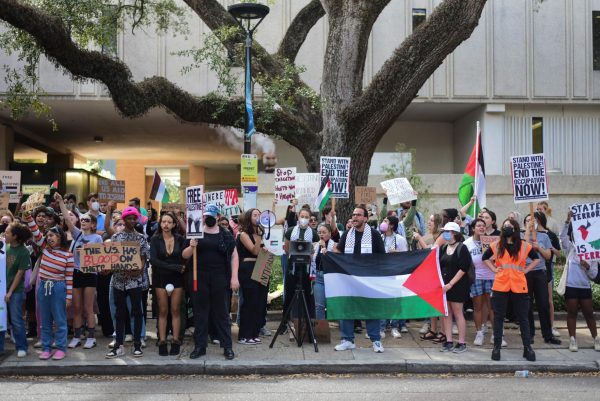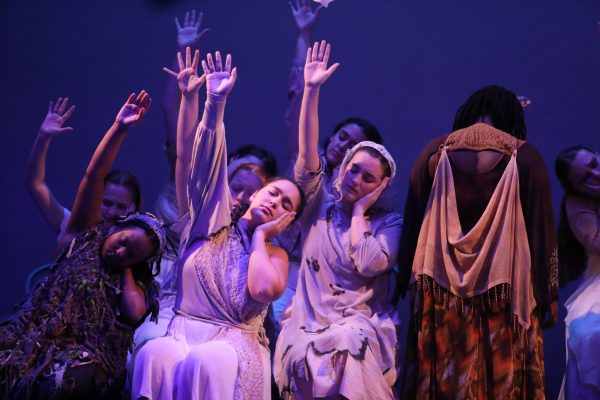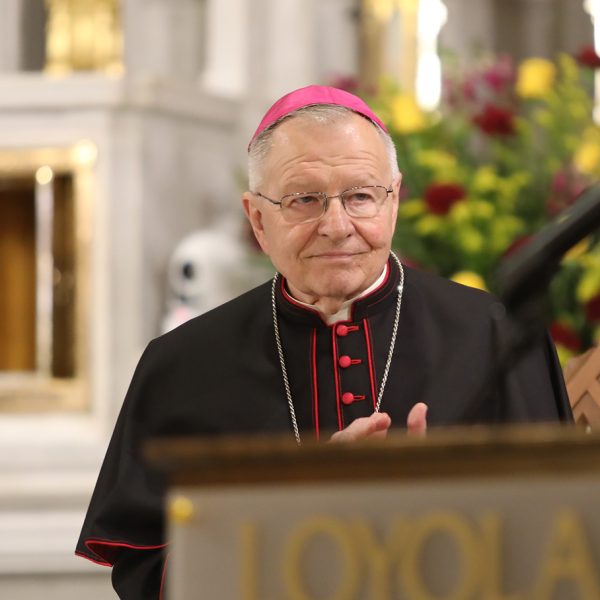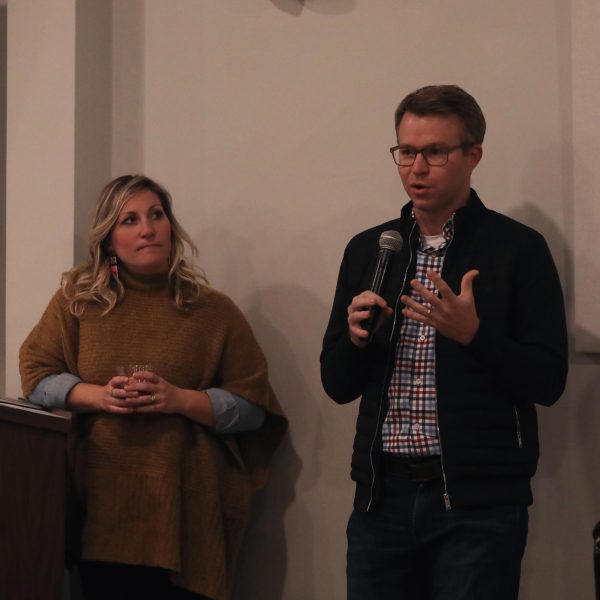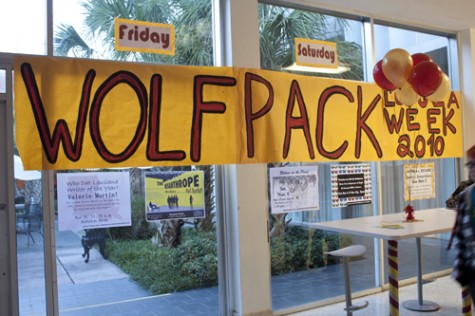Study shows millenials are non-religious
Ignatius Chapel holds weekly liturgies for the Loyola University community. Recent studies conducted by the PEW research center show that milennials tend to be non-religious.
December 10, 2015
Recent study done by the PEW Research Center have shown a steady decline in the amount of religious people in America and an increasing number of millennials wwho identify themselves as “nones” is believed to be the cause.
Jessica Martinez, Pew senior researcher, credits this decrease in religious affiliation to two factors: generational replacement and religious switching.
Martinez said that each generation has less religious affiliation than the previous generation.
“As the millennial generation enters adulthood, this generation is replacing older, more religiously affiliated generations,” Martinez said.
Daniela Leal, film studies junior, is among those people who identify as a religious “none.”
“In the simplest terms, I don’t believe in organized religion,” Leal said.
Leal grew up with a Catholic father and a Jewish mother. She said that neither of them made their religions a big part of her life.
“I sometimes wonder how my values and morals would be different had I been affiliated with either Catholicism or Judaism,” Leal said.
Many people attribute this to the growth of curiosity in the digital age.
Leal feels that children are growing up fast due to technological and social developments.
“When given complex questions about life, it becomes a mental battle between what they have been raised knowing and how all of this new information is challenging that knowledge,” Leal said.
Charlotte Klasson, president of New Orleans Secular Humanist Association, said younger generations are turning away from organized religion because it doesn’t answer life’s hardest questions.
“They simply don’t find supernatural belief to answer the curiosity for intellectual pursuits that are available now,” Klasson said.
Martinez said that people who were raised with certain affiliations tend to switch when they reach adulthood. She said nearly one-in-five U.S. adults were raised in a religious faith and now identify with no religion.
Although there is a rise in the percentage of unaffiliated people, Martinez said religious “nones” only account for about 36 percent of the population.
“I would note that even as the unaffiliated share of the U.S. adult population has grown rapidly, there is still quite a bit of stability in the U.S. religious landscape,” Martinez said.
Loyola’s Mission and Ministry program aims to help students understand their faiths and maintain the religious landscape here at Loyola.
Laura Alexander, university ministry assistant, said students turn to religion to find what they are missing in their lives.
“I think there is a real hunger for more, whether it’s more community, deeper community, deeper sense of meaning and purpose,” Alexander said.
According to Alexander, experiences like First-Year Retreat and Awakening help students find that purpose.
“What we do is kind of offer the community aspect, but then we also really encourage students to experience a transformational faith experience with Mass,” Alexander said.
Flora Nguyen, management freshman, said that her faith is the most important thing in her life.
“I wouldn’t be the person I am today without my faith. It brings light in times of darkness, and that is what I need for self-fulfillment,” Nguyen said.
Nguyen said that Awakening and First-Year Retreat helped her to find community with her peers and God.
“You are with a community that wants you to be the person you are called to be while listening to amazing life experiences and having fun,” Nguyen said.
Leal said that she finds the community in all things around her, but she thinks it’s important to find a group of people who share the same morals as you.
Klasson said that the members of the New Orleans Secular Humanist Assocation use their common morals for the good of the people around them.
“We also believe that morality comes from within and from our willingness to help our community. We do not rely on an outside source to define this,” Klasson said.
Leal said that morals are important, but she does not believe in the concrete set of morals that religion has, especially in this constantly changing modern world.
“I think it’s okay to have a moral code with which to live your life by, but without boxing it in and putting limitations on it, because maybe one day you’ll feel different and want to change your code,” Leal said.
Although Leal does not practice religion herself, she said she understands its role in society.
“Organized religion isn’t for me, but I can understand how it is such an enormous part of the way society functions,” Leal said


